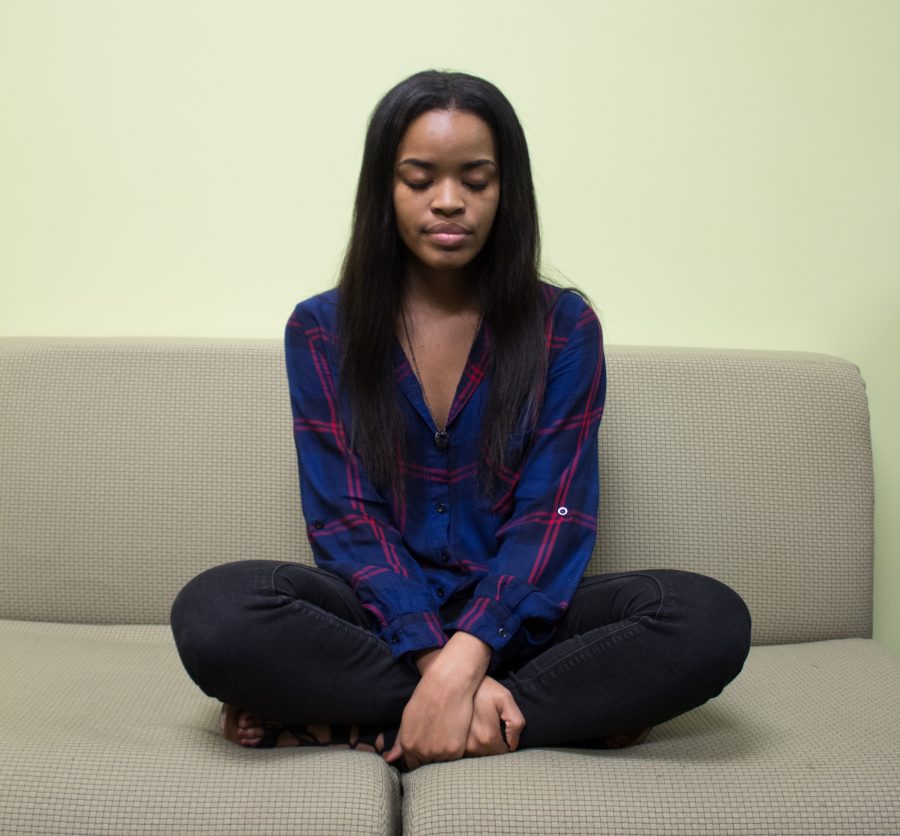Students explain being ‘spiritual but not religious’
Janae Sterling, mass communication sophomore, mediates. Sterling identifies as spiritual but not religious, as do a growing number of Millennials.
January 26, 2017
Janae Sterling, mass communication sophomore, withdraws to a quiet room and introspectively meditates. According to Sterling, it’s how she cares for her soul.
“I believe in some type of God, but not the construction of it, like a church or a Bible,” Sterling said.
She believes that people should seek spirituality instinctively, rather than being forced into religious belief systems as children.
Sterling is one of the 23 percent of Americans who identify as “spiritual but not religious,” according to the Pew Research Center. The center has found that younger generations today provide a less devoted following of religion than they used to.
By doing this, experts say, young people free themselves of the confines of modern religion and promote spiritual exploration while retaining a connection to something beyond themselves.
Philip Kenneson, a theology and philosophy professor at Milligan College, has written on the topic of being spiritual but not religious. Kenneson said that even though millennials are showing increasing disinterest in organized religion, there is still a large interest in
the transcendental.
“In a society awash in consumerism and an endless array of distractions, churches might be grateful that many people (including many young people) still long to connect to something deeper and enduring,” Kenneson said.
Rob Noelke, psychology sophomore, said he relates to this desire to connect with something greater.
“I am always looking for new perspectives and have an open mind towards everything around me. That’s really important. I haven’t found a religion that allows me to do that,” Noelke said.
Noelke said he connects with nature through camping and hiking to fulfill his spiritual needs. Coming to an urban city for school in contrast to his Austin, Texas home surrounded by nature, Rob said he has found it difficult to achieve the same sense of spirituality he used to.
Kenneson said that the number of millennials who don’t affiliate with a religion will continue to rise because of this generation’s skepticism about institutions.
Still, he said, they are likely to continue to seek out spiritual experiences in the absence of religion.








Christine Messado • Jan 28, 2017 at 6:11 am
Interesting and well written article. The churches now have an opportunity to adjust their approaches to meet the changing needs of the population.
John Kuykendall • Jan 27, 2017 at 5:03 pm
We can realize that our true existence is spiritual and that material creation is present in pure consciousness considering that Christ did it by recognizing that God’s pure consciousness is present everywhere. This pure consciousness is active in our daily lives even though it is invisible to the material senses; people pray to the Supreme Consciousness, it doesn’t change, but people who let the pure consciousness shine through them do change.